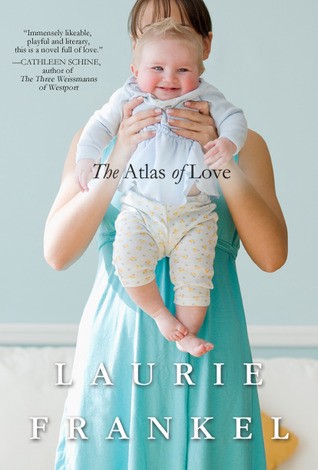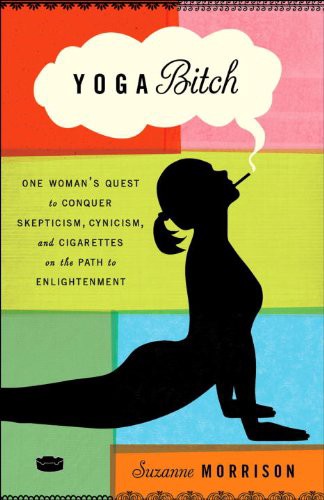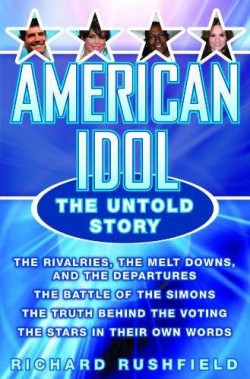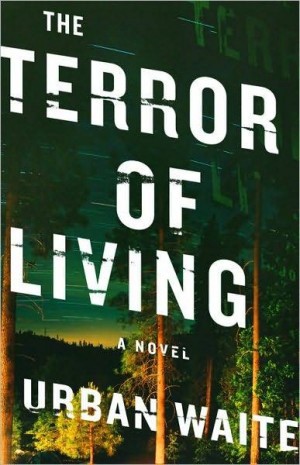Four Writers Tell All About Titles

The title of a book, along with maybe the cover, is most often what’s going to lead a potential reader to pick up your baby book. Which isn’t to say coming up with a good one is easy. To the contrary, it’s the sort of thing, like naming a band, that can cause everyone involved a lot of agony, particularly when an author has settled on something very early in the process and someone else (usually involved in selling it) however many months or years later decides that the book might be better served with something different.
So, how do we know if we have a good title? According to author Bennett Madison, there’s only one way: “Before you decide on your title for real, practice telling it to people at parties. If you can do it without cringing/wincing it’s the perfect title!”
Okay, now that you have your title in place (at least in from your vantage point) and your book is in production, what happens next? With a thought to find out, we asked a few authors — including Laurie Frankel, Suzanne Morrison, Richard Rushfield and Urban Waite — the following set of questions:
- Did the title of your book(s) change between selling your manuscript, submission, and publication?
- If so, who instigated the title change? Did your agent get involved at any point? Did your contract have any title provisions that came into play?
- Did you create the new title of the book or select one that was offered to you? Can you share some of the suggestions that were proposed?
- Did you “push back” in any way w/r/t the new title, and did the process cause any emotional or other trauma? (If so, did you recover?)
Let’s dive in!
Laurie Frankel

My first novel was called Naked Love. Note the use of the past tense. That said, it was called Naked Love for a really long time. I had the title first. Well, the title and the titular moment about two-thirds of the way through the book. I had it before I had an ending or even a middle or even a setup, plot, or names for the characters. I had the title before I had any idea whether or not I could write a novel. I had to rewrite the first chapter 12 times — and I’m talking wholesale rewriting, not revision; I’m talking about opening a blank document and starting from nothing — but I knew the title before I knew basically anything else.
My husband, who is a software engineer and knows nothing in particular about the book industry, often reassured me while I was writing it that, though I knew no one and nothing and had no experience or previous publications or connections or faith in myself or what I was doing, the book would find its way because the title was so salable. My wonderful agent loved the title. My wonderful editor loved the title. For months and months of revising and editing and getting to know the ins and outs of this crazy industry, the idea of changing the title never came up.
And then one day it did. My editor mentioned it late in a conference call about a thousand other things. She said she was in an editorial meeting and someone had suggested a title change. They didn’t say to what or why, and she hesitated even to mention it so certain was she that nothing would come of it. My agent said, “No! Are they [expletive] [expletive]ing me?!” My editor said not to worry about it.
Then a few weeks later, she said to worry about it. It comes up again and again at meetings, she said. Naked Love sounds too generic, too nondescript, too much like soft-porn, too much like Naked Lunch. They wanted to call it Raising Atlas after the baby in the book whose name is Atlas. I said if Naked Love sounds too much like Naked Lunch, doesn’t Raising Atlas sound too much like Raising Arizona? I submitted a couple dozen titles with the name Atlas in them that I felt like I could live with. My editor reported back: “They didn’t like them.” “Any of them?” I asked. “Nope,” she said.
One morning she emailed me and my agent, “They like The Atlas of Love. What do you think?” My agent wrote back, “Are you kidding? That’s the title!” All the folks in her office loved it. All the folks in-house at the publisher loved it. Me? I was sleeping. This was happening first thing in the morning in New York. It was 5:30 a.m. in Seattle. By the time I got up, I had a flurry of emails from people cc:ing me but responding to each other about how much they loved this new title. So what could I do? Learn to love it too.
Learning to love it too has been something of a battle for me. I’m new to this game, so I can’t give advice; I can only explain how I learned to stop worrying and love the title. My agent, who knows much more about writing and selling books than I do, loved it. My publisher, who knows much more about writing and selling books than I do, loved it. My editor, who had been as attached to Naked Love and its titular moment as I was, loved the new title. And I figured they knew. And I figured I should be conciliatory and flexible and trusting and full of faith because, as I say, I’m new to this game. Meanwhile, at work on novel number two, I have a working title I refuse to get emotionally attached to. And this niggling reminder I learned in kindergarten and have clung to ever since: it’s what’s inside that counts.
Laurie Frankel is the author of The Atlas of Love. She lives in Seattle where she is at work on novel number two.
Next: Suzanne Morrison on remaining a Yoga Bitch.
Suzanne Morrison
It took almost losing my title to convince me of its value. Yoga Bitch had its start as a one-woman show I developed with my director, Jean-Michele Gregory, in New York. Jean Michele and her husband, the uber-monologist Mike Daisey, spent many hours with me debating titles for the piece. It was a group effort. All I knew was that I wanted a title that would capture the conflict between the sacred and the profane, and the way in which the search for my higher self brought me into direct contact with my lower self. In fact, that was the working title for the show: The Lower Self.
The Lower Self was problematic. First off, it suggested that the piece was about my lower body. My below-the-belt region. But while that region is certainly represented in the story, by way of piss-drinking yogis and mulabandas and hot-for-teacher dreams, my netherparts aren’t exactly the point of the story, not exactly title-worthy. The other issue was that people kept asking if my story had anything to do with Gorky’s The Lower Depths. It required explanation. We shrugged our shoulders and kept working.

A few months into the process, Mike was scheduled to go in for oral surgery. Jean-Michele sat with him as the anesthesiologist prepared him to be put under. Mike’s eyes got droopy, but then they popped open. “Suzanne should call her story Yoga Bitch,” he said. And then he passed out. Jean-Michele arrived the next evening for our meeting in an ebullient mood, and presented the title to me as a glorious gift. I found it absolutely horrifying. It was so brazen, so bold, so perfect. I hated it, the way we hate fate, or a photograph that reveals too much about how we really look. There was simply no other title. This title ate all the other titles we had bandied about for breakfast.
A million years later, I sold Yoga Bitch to my publisher and was in the middle of the final round of revisions when I received an email from my editor. She had been in conversations with the marketing folks and everyone was a little concerned about my title. Not because of the profanity, but because the title might mislead readers into thinking the story was more biting or sarcastic than it is. That they would come prepared for a brassy, “fuck yoga!” kind of book, and be disappointed when they discovered that I actually take my subject seriously, if irreverently. She said they’d been batting around a few ideas, and the alternative title they’d come up with was The Yoga Diaries.
A lot of writers think their editors are crazy when they try and change their titles, but I didn’t. I knew exactly what she was talking about, because I had been worrying about the same thing. In writing the story as a book, deeper themes emerged that hadn’t been present in the play; fear of death, yearning for faith, the hunt for something real. I was as worried as my editor that these more earnest aspects of the book would confuse or disappoint readers looking for a light, edgy, sardonic tale. I imagined a woman in skinny jeans and halter top reading about my secret yearning for God and faith and throwing the book underfoot to poke holes in its cover with her stiletto heels: I was promised bitchy! This isn’t bitchy!
I told my editor I’d think about it, and she gave me the week to get back to her with my answer. And then I wrote up my immediate reactions.
What I liked about trading out Yoga Bitch: 1) I liked that it separated the play from the book, because they were different; I agreed with my editor that I didn’t want folks to pick up my book expecting Skinny Bitch on a yoga retreat (see above fantasy re: stiletto holes); 3) I worried that, if my book was successful, I would always be That Yoga Bitch.
What I didn’t like about changing the title: 1) Yoga Bitch is instantly eye-catching. It gets an immediate response (usually laughter, then curiosity) and people remember it, both of which are hugely important; 2) the title Yoga Bitch had taken me a long way from a basement theater in New York to London and back again; there was a strong online presence for the title, and I often heard from people who were already familiar with it; 3) there were times during the writing of the book when, in spite of all my fears, I felt that the title said something like, “This book is funny and occasionally vulgar, but ultimately it deals with a subject matter I take seriously.”
My ambivalence thus recorded, I started polling everyone I knew. Nobody liked The Yoga Diaries. Well, one friend loved it, but she’s never liked Yoga Bitch, so she probably would have liked any alternative title. She would have liked Yoga Book. My husband suggested Mein Kampf… mit Yoga. My aunt offered Three Cups of Pee. One cousin noted that The Yoga Diaries would play better in conservative cities like Spokane. But I didn’t write the book for conservatives in Spokane, so that didn’t convince me. My mother came up with the title Doggie Style: How I Did Yoga. Oh, wait, no. That was me. Or wait, no: that was the alcohol.
My agent’s response was succinct: No f-ing way, she said. Yoga Bitch is the gift that keeps on giving.
That week I pored over the book, looking for guidance. And to my surprise, every page told me the same thing: Yoga Bitch was the title. It was woven into every page of the book. It perfectly captured the story I was trying to tell, a story that was equal parts sacred and profane, Yoga and Bitch. Not only bitch as in bitchy, but bitch as in bitch session, as in the yoga bitches that populate every urban city, as in, “It’s a real bitch, having to convince my yogamates that I’m not going to drink my pee.” It did the very thing I set out to describe in a title: it said that when I looked for my inner yogi, I found my inner bitch. She’s not skinny, in heels, with a martini and a sour expression on her face. She’s me, just ten years younger and a little more deluded, a little caught up in the ego rush of a big yoga breakthrough, a little bit resentful of that twentieth sun salutation, a little bit in love with two men, and absolutely terrified of the future.
Once I had made up my mind, it was time to convince my editor. I’ve had a great experience with my publisher — from my editor to publicity and marketing, I’ve had nothing but support and wise counsel, so in that I consider myself extremely lucky. I wanted to make it clear that I hadn’t dismissed their idea, that I had wrestled with The Yoga Diaries and Yoga Bitch until a victor emerged. So I wrote up a proposal for why and how to keep the title as-is. I wrote up sample back-copy and included links to cover art. The most salient points were these: 1) Yoga Bitch has a perspective on the yoga story that The Yoga Diaries does not; 2) what makes the title great is the tension between the two words and that what we’d need to do is make clear in press releases and in the back copy that the book is as much Yoga as it is Bitch; 3) let’s keep Yoga Bitch, but use it in a sophisticated way. I suggested we do this through the cover design and in the back copy, by using a font and cover art that played against the “Bitch” in the title, preparing readers for the tone of the book.
My editor agreed with me at once, and she smartly suggested that we could use the subtitle to clarify these points as well. She suggested Yoga Bitch: One Woman’s Quest to Conquer Skepticism, Cynicism, and Cigarettes on the Path to Enlightenment, which I loved. And then she guided the cover design to something that is so perfect I wanted to cry when I first saw it. No stilettos, no martini glasses. I loved it.
I suppose if I were to have any advice to writers starting out, it would be to work with your editor. Give her the benefit of the doubt; a good editor knows what she’s doing. But you know your story and it’s your name on the cover of the book. So whether you’re ambivalent or you feel strongly about your title, speak up. Ask for time to think about it, and take that time to think through your arguments and present them respectfully and persuasively.
Suzanne Morrison’s memoir, Yoga Bitch: One Woman’s Quest to Conquer Skepticism, Cynicism, and Cigarettes on the Path to Enlightenment, will be published in August.
Next: Richard Rushfield on the titles that come easy and the ones that don’t.
Richard Rushfield

I had two very different experiences with titles on my last two very different books. On my memoir of college in the grunge era, I had the title Don’t Follow Me, I’m Lost before I had the book, or even the idea about the book. Going back about ten years I knew I wanted to write something about the grunge era and that title for me perfectly captured what I wanted to say about it. At first, I thought I was going to write a screenplay about the period, and then it became a novel. Then after writing 300 pages I felt that the novel wasn’t working and I was wrapping myself in artistic circles trying to fictionalize a story instead of just telling it. So it became a memoir, but at every stage, DFMIL was the title, and in my mind the premise of the thing. For me the title worked on a couple levels: it captured the pointless drift of the era but it was also a reference to a jokey bumper sticker that was ubiquitous in the ’70s, so it was a kinda snide cultural reference to the ’70s, which was a theme of the grunge era as well. Only after the book was published did I find that people who don’t remember the ’70s had no idea that that was a reference to anything, so that was lost on them. But it still always guided me.

My most recent book, a history of American Idol was sold as American Idol: The Last Empire but then it was changed during the pub process to American Idol: The Untold Story. The change was instigated by the publisher on the thinking that The Last Empire was vague and didn’t tell you much of what the book would be about. That we needed something both sexier and more specific. I couldn’t really argue since this book was intended for a very broad audience and in any event, while I liked The Last Empire, I wasn’t deeply wedded to it. My agent was involved, but since I wasn’t really arguing that we needed to keep my original title it never came to looking up what was in the contract. There were extensive discussions and back and forth involving my editor, my agent and the marketing team. Lots of titles were suggested. I can’t recall what they were and in the end, I really don’t even remember who came up with Untold Story. I didn’t fall in love with it, but it seemed to most clearly encapsulate what this book was and why people should by a book about a TV show that they had been reading tons about for a decade already.
The pushback was more over the subtitle and that got very intense. The marketing folks wanted a more sensational version that emphasized the fights and conflict. I wanted one that highlighted the grandeur and aspirational aspects. I was probably afraid to sound too tawdry and the marketing people were probably right, so its an example of sometimes you can cling a little too hard to your work.
Don’t give up searching for the right title. When you find the perfect title, the entire project seems to just fall in line beneath it. Sometimes you can’t. Sometimes it’s press time and you’ve just never come up with on that just feels like it encapsulates everything you want to say in four words. But keep trying as long as you can because when you get the title right, it’s a better feeling than finishing a book.
Richard Rushfield has written books about American Idol and his college dorm and attempts to keep up a Tumblr.
Next: Urban Waite on the frustrations of hunting for a new title..
Urban Waite

People have said, “That is one bad-ass title!” while talking about my novel, The Terror of Living. While others have complained, “The title is the only thing I didn’t like about the book.” Both, I suppose are compliments in their own ways. And both opinions fairly warranted. The truth about the title, The Terror of Living, is that I like it, I don’t love it. Sometimes I think it’s over the top, too bold, too much. Just another blown-out title to put up on the shelves next to other blown-out titles, but then I think about why I chose it and why it has stuck. The term, “The Terror of Living,” comes from listening to a story about dying young from a terminal disease. For me it’s a title about the inevitability of death, and the fears that ride along through life with us. It’s a big title, I’ll admit that freely, but when it came down to picking something I thought could bridge the gap between literary and thriller, as the reviews have pointed out, it seemed to me the perfect fit.
For about a month the publisher, with my help, floated new and different titles around. I don’t know exactly who decided to start through on the process of re-thinking the title, whether it was marketing or editorial, what I do know is that every quarter or so there is a title meeting, in which both sides sit down to discuss the upcoming releases. Terror didn’t make it out of the meeting without a few holdups. It was too big, or too genre specific, or wouldn’t play to the common reader. I’m not exactly sure. What I do know is that coming up with a title for a book you had previously thought was finished, is one of the most painful writing experiences I’ve ever had to go through. There are a lot of dead ends, a lot of titles that have already been done. I remember searching through Amazon’s online database, thinking the whole time: “This is the one!” Only to find out my current favorite had been a book three years before, and somehow became a movie I didn’t even know existed.
There are a lot of suggestions that fall on deaf ears and butt up against the various frustrations of the task. Normally serious, straightforward titles take on a tinge of sarcastic fury; for example, Into a Darkening Forest becomes: “I’ll give you something dark to…” I won’t go on here, but you see where it was going. Where, strangely, in the mood of the time, most of them did. Simple, one-word titles became the payoffs to jokes. The title, The Pass, loved by some, made others of us cringe, causing a string of sayings such as: “I’d like to pass on that title,” or “As long as you never bring up that title again, I’ll give you a pass.”
You wake up in the morning with a list of fifty titles next to your bed, and go to sleep with every one of them crossed off, while trying to think up the next day’s list. It becomes a process. It goes on for a month, this daily grind of panning for a title, hoping against all odds for just a small piece of gold. In the end, we went with The Terror of Living. There are people who love this title, and in the end they won through. Still, I can’t help but laugh every morning when I stumble out of bed, zombie-like toward the coffee, with my wife commenting, “It’s The Terror of Writing.”
Urban Waite’s novel, The Terror of Living, is the love child of Anton Chigurh and Hannibal Lecter, and has been picked by Stephen King (in Entertainment Weekly) as the final, knock your socks off, best read of the summer.
Matthew Gallaway is the author of The Metropolis Case which for all but a few agonizing months during the writing, editing, and production of the novel was called The Metropolis Case. (The Metropolis Song and Vec Metropolis were both considered and thankfully rejected.) The next installment of Publishing School will be on “author events,” so if you’re an author (or publicist!) who would like to throw in your two cents, feel free to get in touch at at mattgallaway [AT] gmail [DOT] com.
Top photo from Flickr by mpclemens.
